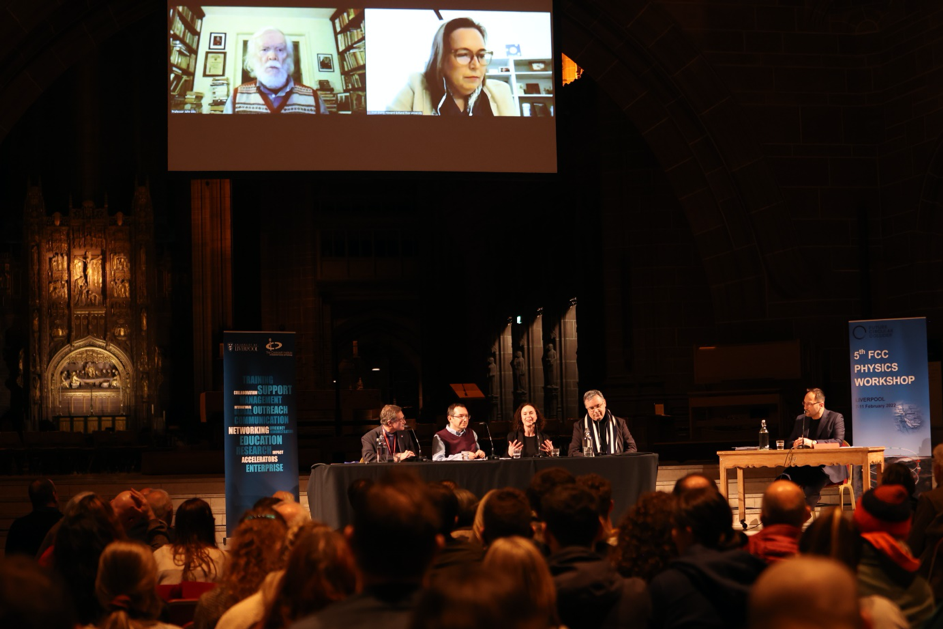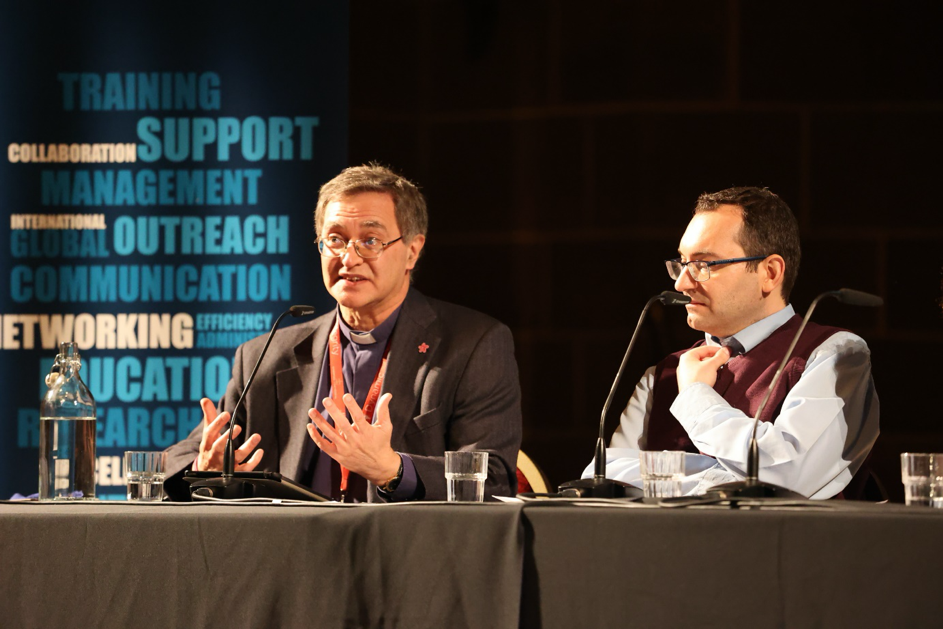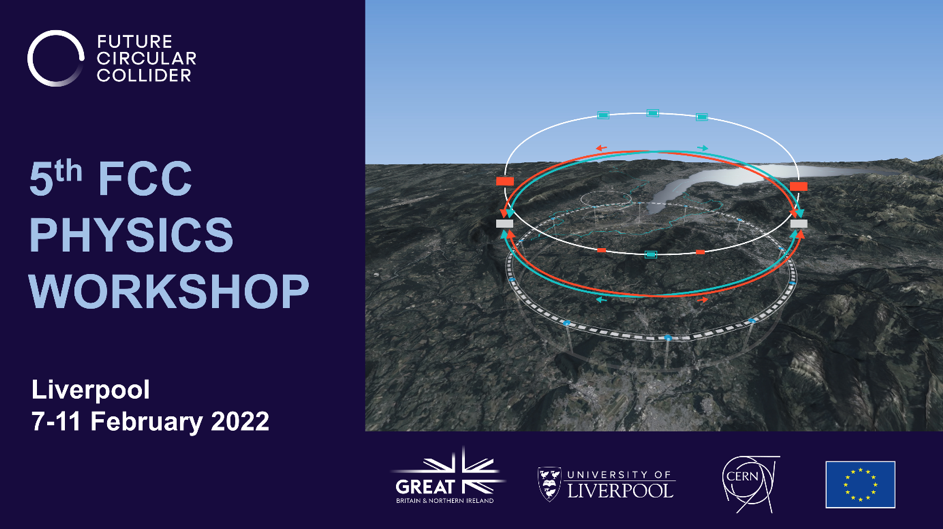For the first time since the launch of the FCC feasibility study, the FCC physics community gathered to reflect the status and achievements of FCC Physics, Experiments, and Detectors studies and initiate new activities.
The fifth FCC Physics Workshop, organised by CERN and the University of Liverpool, gathered over 600 participants and made it the largest FCC Physics Workshops to date, welcoming the widest community, geographically, thematically (colliders and beyond), and members of other ‘Higgs factory’ and future projects.
The meeting offered an opportunity to sharpen the Future Circular Collider (FCC)'s physics case. A future e+e- circular collider (FCC-ee) will deliver mind-boggling integrated luminosities to study all standard model particles and their interactions with the Higgs boson – with unprecedented precisions. A number of talks covered possible high-precision measurements and the observation of rare processes that would be made possible by these large data samples; thus opening avenues for new physics discoveries, from very weakly-coupled light particles that could explain the yet unobserved dark matter to quantum effects of high-mass scale new physics. In addition, speakers referred to the physics studies opened by the direct kinematic reach of an energy-frontier proton collider (FCC-hh) hosted in the same tunnel. The staged approach provides the most efficient and pragmatic way towards the energy frontier while the scientific synergies between FCC-ee and FCC-hh give access to a diverse scientific programme that would contribute in answering some of the biggest questions in modern physics.

In addition to discussions of the physics case of FCCs, the meeting was ideally suited to reflect on detector requirement and progress on the design of new physics analysis tools and methods. Concrete detector concepts for FCC-ee were discussed, based on the efforts to establish the detector requirements from physics studies to fully benefit from statistics, variety of channels, new physics sensitivity. The goal, as part of the feasibility study is to provide a coherent set of solutions that would allow exploiting the physics opportunities of the new collider and deliver preliminary infrastructure requirements and cost estimates. Finally, a key aspect is the development of the required software framework that is needed to advance with simulation and event reconstruction.
A post-LHC infrastructure requires a dedicated physics community with the common goal to carry out a long-term scientific research programme and fully exploit the research opportunities offered by these scientific tools. The meeting also allowed establishing constructive collaboration with linear collider teams and align the R&D plans with other roadmaps and activities at European and global level. In that direction, discussions during the meeting will inform the preparation of an FCC paper that will be submitted in the Snowmass process in the US.
The distribution of the more than 600 participants, testifies to the global attractiveness of the project while it gave many newcomers insight into the different Physics Experiments and Detector (PED) activities of the FCC feasibility study.
Where faith meets science

As international scientists converged online to discuss the Future Circular Collider, the University of Liverpool Physics Department hosted the outreach event '21st Century Particle Physics: discussions on Science and Faith’ on 8 February 2022. The event took place at the famous Liverpool Cathedral, the eighth largest church in the world. Particle physicists and theologians gathered to explore how a journey into the unknown takes a combination of faith, philosophy and science.
On the panel was Canon Scientist Dr Mike Kirby, a medical physicist who balances his work in cancer therapy with his work as a priest. He gives talks in schools about anti-matter, dark energy and the size of the universe – and how incomprehensible it is: “People often think that God is in the gaps in our knowledge and gets squeezed out when new discoveries are made. But there's about 97% of the universe we don’t know about, which is a pretty big gap for God to be in!”
Dr Kirby continues: “The big difficulty for science, as we have seen over recent months, is to explain what we know with any certainty. Science does come up with models for trying to understand what we see and observe within the universe, but science can't answer certain questions, about life, love and emotions, for example. This is where spirituality, faith, and talking in different ways can help us to try to have a handle on this mystery that is life.”
Further panel members included Fr. Andrew Pinsent (University of Oxford), Dr Kate Shaw (University of Sussex), Prof John Ellis (CERN, KCL), Prof Elaine Howard Ecklund (Rice University) and Dr Nikos Rompotis (University of Liverpool), moderated by acclaimed science writer Dr Michael Brooks. The outreach event was a great success, attracting more than 100 participants from science and the general public.
Professor Carsten P Welsch, Head of the Physics Department at the University of Liverpool, who organized the evening with Dr Tessa Charles, Matthew Mccullough and his Project T.E.A.M. explains that the FCC will push the frontiers of knowledge still further.
“Science knows no boundaries, as we have seen with the international effort to tackle the pandemic. Having an exciting goal creates ambition and vision. The Future Circular Collider provides such a focus. The world today has been transformed by the computer technologies that have spun-out from work on particle science but now, maybe more than ever, there is a role for science, philosophy and faith in shaping a future that we all want.”
Carsten P Welsch, Head of the Physics Department at the University of Liverpool
More information about the fifth FCC Physics Workshop here.

